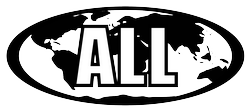DER OLYMPIA ZUG (1935)
In 1936, Germany sponsored both the winter and summer Olympic Games. It was Dr. Goebbels intention that everyone in the county get into the spirit of the Olympic Games and view it as both an honor and a mission, through which the bad press about Germany --- and the Nazis --- could be wiped away, if Germany presented itself as a welcoming and courteous host to its foreign guests. And to ensure national awareness of the Games, a mobile exhibition known as “The Olympic Train” toured around Germany with displays, dioramas and information about the upcoming event. This film portrays the preparation of the train for its journey around the Reich and the setting-up of displays wherever it went.
Approximately 4 minutes. No dialogue; musical background. Overall, very good quality.
EIN BESUCH IM JUNGVOLKLAGER BEI HEYM (1935)
The Jungvolk was the preparatory group for the Hitler Youth, set up for children, who were still too young to join the HJ. This film takes us on a tour of one of these camps and of the region surrounding it.
Approximately 11 minutes. No dialogue; musical background. Some German intertitles without subtitles. Poor, fuzzy quality with serious pixellization issues.
TAG DER FREIHEIT (1935)
This movie would no doubt be of great interest to those interested in military history. No other documentary allows us to see how certain equipment is used in its most proper way, how it works, how it is operated and so on. Just take a look at the rapid deployment of the PAK guns; their crews fighting off tanks; flak batteries in an air defense role … Such pictures have great learning potential in and of themselves. Scholars of military history can learn very much about the strategies and military doctrine of pre-Blitzkrieg Germany; especially through the well performed maneuvers shown in this movie. Truly essential documentary for anyone interested in the topic.
Approximately 16 minutes. No dialogue; musical background. Some shouting, but not enough to merit subtitling. Unsharp, but decent quality.
EHRE DER ARBEIT (1936)
And yet another Nazi propaganda film extolling the virtues of work and honor.
Approximately 27 minutes. Mostly singing; where there is speaking, there is hard-encoded English subtitles. Unsharp, fuzzy quality.
DIE DEUTSCHE FRAUENKOLONIALSCHULE RENDSBURG (1937)
Propaganda film shows the kind of training women receives at such institutions prior to accompanying their men on the journey to colonize what is to be future conquered lands.
Approximately 20 minutes. In German; no subtitles. Overall, unsharp, but decent quality.
GARDETAG IN DUSSELDORF (1937)
A quick review of veterans and a present-day Wehrmacht honor guard parading in Dusseldorf in commemoration of this day honoring the military.
Approximately 7 minutes. No dialogue; musical background. German intertitles with switchable English subtitles. Overall, washed out and unsharp quality.
EXHIBITION: “SCHAFFENDES VOLK” IN DUSSELDORF (1937)
The Reichsausstellung Schaffendes Volk (The Reich's Exhibition of a Productive People) of 1937 was held in the North Park district of Düsseldorf, Germany, along one mile of the Rhine shoreline. It was opened on May 8, 1937 by Hermann Göring. Through October of the same year it attracted more than six million visitors.
Planned in secret and deliberately designed as a rival to the 1937 International Exposition of Modern Life in Paris, the exhibition was meant to showcase the domestic accomplishments of the National Socialists in new housing, art, and science during their four years in power. The fair's director was Dr. Ernst Poensgen.
The exhibition was laid out in four main divisions:
industry and economics
land utilization and city planning
material progress (with an emphasis on progress in synthetics)
arts and culture.
Through the publicity efforts of its CEO, Max Keith, a functioning Coca-Cola GmbH bottling plant stood at the center of the fairgrounds, with a miniature train for children, and immediately adjacent to the Propaganda Office.
Approximately 6 minutes. No dialogue; musical background. Overall, very good quality.
REMEMBERING DR. FRITZ TODT (1939)
Interesting homage to the man, who was responsible for the upgrading and new construction of highways in the Reich during the pre-War years. If you’re driving on a highway in Germany, there’s a good chance, he had it built.
Approximately 2 minutes. In German with switchable English subtitles. Overall, excellent quality.
REICHSMINISTER SEYSS-INQUART IN LIMBURG (1940)
Just as it says: a short film about the Reichsminister’s visit to Limburg.
Approximately 6 minutes. In German with no subtitles. Overall, good quality.
REICHSMINISTER SEYSS-INQUART IN THE NETHERLANDS (1940)
This film shows the events in Holland, when the transfer of power to the new minister for internal affairs, Dr. Seyss Inquart, took place.
Approximately 5 minutes. In German with switchable English subtitles and hard-encoded Dutch subtitles. Overall, excellent quality with unsharp edges.
TOTAL DURATION: APPROXIMATELY 104 MINUTES.




